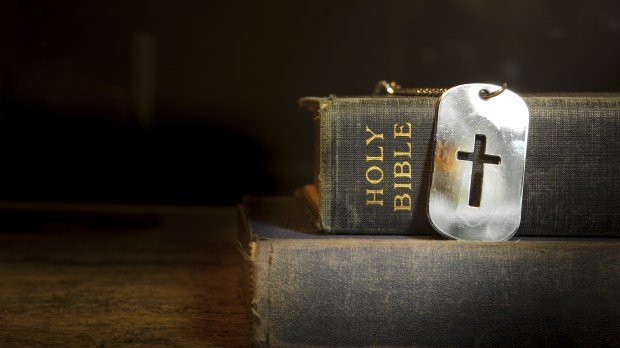On July 4th Americans celebrate Independence Day. Freedom and Faith both have much in common — both require continual vigilance, personal responsibility, and sacrifice. Each requires our personal sacred pledge to endure.
James T. Draper Jr. wrote an engaging essay “Was Their Pledge in Vain?” regarding Americans’ celebration of the 4th of July. Draper writes:
The excitement of independence boiled in the streets of Philadelphia as John Adams rose early on July 2, 1776. He sat at a small desk in his rented room and quickly wrote a note to his wife, Abigail.
“The second day of July 1776 will begin the most memorable epoch in the history of America.…It ought to be commemorated as the Day of Deliverance by solemn acts of devotion to God Almighty.…”
July 2, 1776, was the day for final debate regarding Thomas Jefferson’s draft of the Declaration of Independence. The document served England notice that America would no longer live under England’s tyranny. It was officially adopted two days later.
It is important for us to reflect on those tumultuous days 247 years ago, to pause for more than a moment so that we can transport ourselves from our slick, high-tech world of convenience to the uncertain future facing our ancestors. Those 56 men who signed that document immediately became outlaws, objects for the hangman’s noose if captured by the British army. Most paid dearly for their desire for self-government. Five were captured and tortured before their deaths. Two lost sons in battles; sons were captured. Nine fought and died from wounds received. Many of the 56 were wealthy farmers, lawyers or businessmen. Most of these Founders wound up bankrupt and destitute. Independence cost them everything.
It is well to remember that freedom is never free. Freedom always comes with a price. The same can be said of faith. Consider well the price paid for freedom. Consider well the price paid by martyrs, that is still being paid today, for the free exercise of faith and religious freedom, lest we ever forget.
The last sentence of the Declaration reads, “And for the support of this Declaration, with a firm Reliance on the Protection of Divine Providence, we mutually pledge to each other our Lives, our Fortunes, and our sacred Honor.”
[John] Adams was…a deeply religious man and believed that it was thru God’s providence that this nation would be established.
So, was there pledge in vain? The irony is that the question of their pledge is ours to answer. One way for all Americans to answer is thru our stewardship of their ideals. The responsibility with which we handle the freedoms established by those great men and women of vision becomes paramount to the greatness of our country. Because we have a right to exercise a freedom does not always make it responsible for us to do so. Irresponsibly pushing to the outer boundaries of our liberties eventually weakens the cloth from which we were cut. America was founded to be a moral oasis. The choices we make determine if we will continue the legacy of greatness given to us or if our glory fades like that of other great nations …
Christians should ask themselves an additional question while answering the first: “Am I being salt and light for my nation?” Our responsibility is to live lives that morally transcend the expectations of the founders and meet the expectations of our heavenly Father. Get personal; ask yourself, “Am I living a life that positively impacts my nation because it reflects God’s holiness?”
In his 2008 Welcoming Ceremony Address at the White House, Pope Benedict XVI said:
Freedom is not only a gift, but also a summons to personal responsibility. Americans know this from experience — almost every town in this country has its monuments honoring those who sacrificed their lives in defense of freedom, both at home and abroad. The preservation of freedom calls for the cultivation of virtue, self-discipline, sacrifice for the common good and a sense of responsibility towards the less fortunate. It also demands the courage to engage in civic life and to bring one’s deepest beliefs and values to reasoned public debate.
In a word, freedom is ever new. It is a challenge held out to each generation, and it must constantly be won over for the cause of good Few have understood this as clearly as St. John Paul II.…he reminded us that history shows, time and again, that “in a world without truth, freedom loses its foundation,” and a democracy without values can lose its very soul. Those prophetic words in some sense echo the conviction of President Washington, expressed in his Farewell Address, that religion and morality represent “indispensable supports’ of political prosperity.”
Draper concludes his essay,
God has unquestionably blessed America. Believers must also ask themselves, “Is America blessing God?”…
Let us hear again from St. Benedict XVI: Freedom is not only a gift, but also a summons to personal responsibility.
Likewise, faith is a summons to personal responsibility .… a challenge held out to each generation. Pray today, for the wisdoam, the courage and the guidance to safeguard the sacred pledge of freedom and faith.
And, may it never be said that our sacred pledge was ever made in vain.
–
Notes:
- James T. Draper Jr., President, LifeWay Christian Resources, “was Their Pledge in Vain?”, posted July 3, 2003, https://www.baptistpress.com/resourcelibrary/news/first-person-was-their-pledge-in-vain/.
- Ibid.
- Pope Benedict XVI, Apostolic Journey To the United States of America and Visit to the United Nations Organization Headquarters, Welcoming Ceremony, South Lawn of the White House, Washington, D.C., Wednesday, 16 April 2008 https://www.vatican.va/content/benedictxvi/en/speeches/2008/april/documents/hf_ben-xvi_spe_20080416_welcome-washington.html.
- Op. Cit., Draper


